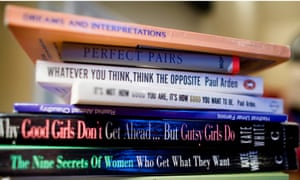Janan Ganesh in The FT
In the novels of Ian McEwan, a pattern recurs. The main character makes a mistake — just one — which then hangs over them forever. A girl misidentifies a rapist, and in doing so shatters three lives, including her own (Atonement). A man exchanges a lingering glance with another, who becomes a tenacious stalker (Enduring Love). A just-married couple fail to have sex, or rather have it badly, and aren’t themselves again, either as individuals or as a pair (On Chesil Beach). Often, the mistake reverberates over much of the 20th century.
This plot trick is said to be unbecoming of a serious artist. McEwan is accused of an obsession with incident that isn’t true to the gradualism and untidiness of real life. Whereas Proust luxuriates in the slow accretion of human experience, McEwan homes in on the singular event. It is too neat. It is written to be filmed.
Well, I am old enough now to observe peers in their middle years, including some disappointed and hurt ones. I suggest it is McEwan who gets life right. The surprise of middle age, and the terror of it, is how much of a person’s fate can boil down to one misjudgement.
Such as? What in particular should the young know? If you marry badly — or marry at all, when it isn’t for you — don’t assume the damage is recoverable. If you make the wrong career choice, and realise it as early as age 30, don’t count on a way back. Even the decision to go down a science track at school, when the humanities turn out to be your bag, can mangle a life. None of these errors need consign a person to eternal and acute distress. But life is path-dependent: each mistake narrows the next round of choices. A big one, or just an early one, can foreclose all hope of the life you wanted.
There should be more candour about this from the people who are looked to (and paid) for guidance. The rise of the advice-industrial complex — the self-help podcasts, the chief executive coaches, the men’s conferences — has been mostly benign. But much of the content is American, and reflects the optimism of that country. The notion of an unsalvageable mistake is almost transgressive in the land of second chances.
Also, for obvious commercial reasons, the audience has to be told that all is not lost, that life is still theirs to shape deep into adulthood. No one is signing up to the Ganesh Motivational Bootcamp (“You had kids without thinking it through? It’s over, son”) however radiant the speaker.
A mistake, in the modern telling, is not a mistake but a chance to “grow”, to form “resilience”. It is a mere bridge towards ultimate success. And in most cases, quite so. But a person’s life at 40 isn’t the sum of most decisions. It is skewed by a disproportionately important few: sometimes professional, often romantic. Get these wrong, and the scope for retrieving the situation is, if not zero, then overblown by a culture that struggles to impart bad news.
Martin Amis, that peer of McEwan’s, once attempted an explanation of the vast international appeal of football. “It’s the only sport which is usually decided by one goal,” he theorised, “so the pressure on the moment is more intense in football than any other sport.” His point is borne out across Europe most weekends. A team hogs the ball, creates superior chances, wins more duels — and loses the game to one error. It is, as the statisticians say, a “stupid” sport.
But it is also the one that most approximates life outside the stadium. I am now roughly midway through that other low-scoring game. Looking around at the distress and regret of some peers, I feel sympathy, but also amazement at the casualness with which people entered into big life choices. Perhaps this is what happens when ideas of redemption and resurrection — the ultimate second chance — are encoded into the historic faith of a culture. It takes a more profane cast of mind to see through it.
